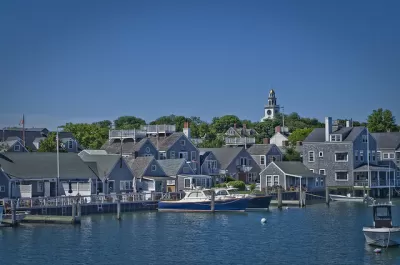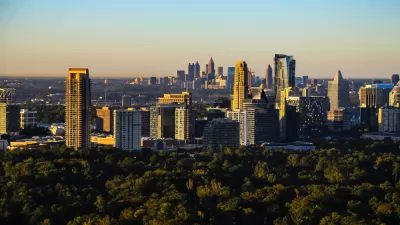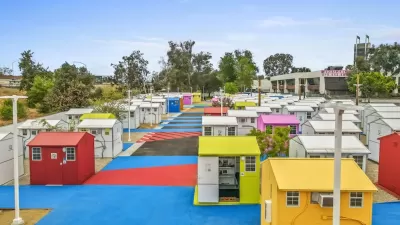A cadre of rich Nantucket homeowners block a project approved by the city to house seasonal workers.

A parking lot next to Miacomet Golf Course was to be the site of some badly needed dormitory housing for seasonal workers in Nantucket, but a small group of wealthy homeowners have stalled the process. The Nantucket Land Bank Project was approved by the city's Select Board. Plans had already been drawn up when a group of wealthy home owners in the area including David Long, the CEO of Liberty Mutual, stepped in to oppose it. Long hired a lobbyist to petition the Massachusetts State Government to stop the project. “Bank officials said the dorm is needed to address the island’s housing crisis, which has made it so hard to find affordable apartments that some workers have been sleeping on basement floors or in old shipping containers," David Abel writes for The Boston Globe.
Long's advocates argue the Land Bank's purpose is to "Preserve land in its natural state," despite the fact that the land the dormitory would be built on is currently a parking lot next to a mechanic. Land Bank officials fear that the lobbying may be showing some returns on Long's investment. The commission says they've now spent $50,000 fighting Long's legal challenges and that his lawyer’s many communications to the state secretary of Energy and Environment, Matthew Beaton, have born fruit pointing out that. "It took nearly a year for Beaton to respond to their request to build the dormitory," Abel reports.
In the meantime, Abel writes, workers continue to struggle to find housing in an area where a typical two bedroom rents for $3,000 a month.
FULL STORY: On Nantucket, wealthy residents oppose housing for seasonal employees

Alabama: Trump Terminates Settlements for Black Communities Harmed By Raw Sewage
Trump deemed the landmark civil rights agreement “illegal DEI and environmental justice policy.”

Planetizen Federal Action Tracker
A weekly monitor of how Trump’s orders and actions are impacting planners and planning in America.

The 120 Year Old Tiny Home Villages That Sheltered San Francisco’s Earthquake Refugees
More than a century ago, San Francisco mobilized to house thousands of residents displaced by the 1906 earthquake. Could their strategy offer a model for the present?

San Francisco Opens Park on Former Great Highway
The Sunset Dunes park’s grand opening attracted both fans and detractors.

Oregon Legislature to Consider Transit Funding Laws
One proposal would increase the state’s payroll tax by .08% to fund transit agencies and expand service.

Housing Vouchers as a Key Piece of Houston’s Housing Strategy
The Houston Housing Authority supports 19,000 households through the housing voucher program.
Urban Design for Planners 1: Software Tools
This six-course series explores essential urban design concepts using open source software and equips planners with the tools they need to participate fully in the urban design process.
Planning for Universal Design
Learn the tools for implementing Universal Design in planning regulations.
Clanton & Associates, Inc.
Jessamine County Fiscal Court
Institute for Housing and Urban Development Studies (IHS)
City of Grandview
Harvard GSD Executive Education
Toledo-Lucas County Plan Commissions
Salt Lake City
NYU Wagner Graduate School of Public Service





























